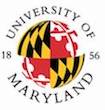|
|
Advanced Numerical Linear Algebra - AMSC/CMSC 763, Fall 2021
|
|
Basic Information
|
|
|
| |
|
Overview
|
-
The course will survey contemporary topics in numerical linear algebra,
including
solution algorithms for sparse linear systems of equations, numerical
methods for solving eigenvalue problems,
linear algebra issues arising in machine learning,
and approximate and probabilistic methods in linear algebra.
Both theoretical and computational issues will be studied.
|
| |
|
Outline of Topics Covered
|
- Iterative Methods
- Krylov subspace methods:
the conjugate gradient, MINRES, GMRES methods and generalizations
- Preconditioning methods: uses and derivation
- Multigrid methods for partial differential equations
Algebraic multigrid
- Communication-avoiding methods
- Computational Methods for Eigenvalue Problems
- Lanczos and Arnoldi methods
- The implicitly restarted Arnoldi method
- Subspace iteration
- The Jacobi-Davidson method
- Linear Algebra and Machine Learning
- Gradient descent and stochastic gradient descent methods
- The Levenberg-Marquardt method for optimization
- BFGS for optimization
- Principal components analysis
- Approximate and Probabilistic Methods in Linear Algebra
- Low-rank computations
- Probabilistic methods
- Tensor methods
- The CUR factorization
|
| |
|
References
|
There will be no assigned text.
Much of the material can be found in the references listed below.
These are largely affordable books and it will be useful to obtain
one or two of them.
-
J. W. Demmel,
Applied Numerical Linear Algebra,
SIAM Publications, Philadelphia, 1997.
-
H. C. Elman, D. J. Silvester and A. J. Wathen,
Fast Solvers and Finite Elements,
Oxford University Press, Oxford, 2005.
-
G. H. Golub and C. Van Loan,
Matrix Computations,
Third Edition, Johns Hopkins University Press, 1996.
-
A. Greenbaum,
Iterative Methods for Solving Linear Systems,
SIAM Publications, Philadelphia, 1997.
-
Y. Saad,
Iterative Methods for Sparse Linear Systems,
Second Edition, SIAM Publications, Philadelphia, 2003.
-
Y. Saad,
Numerical Methods for Large Eigenvalue Problems,
Manchester University Press, Manchester, 1992.
-
G. Strang,
Linear Algebra and Learning from Data,
Wellesley-Cambridge Press, 2019.
-
G. W. Stewart,
Matrix Algorithms Volume II: Eigensystems,
SIAM Publications, Philadelphia, 2001.
-
D. S. Watkins,
The Matrix Eigenvalue Problem: GR and Krylov Subspace Methods,
SIAM Publications, Philadelphia, 2007.
Both references by Saad are available at
http://www-users.cs.umn.edu/~saad/books.html.
Several of the books published by SIAM are available in electronic format, at no cost to
SIAM members, through the SIAM web page, https://siam.org/. SIAM membership is free for
UMD students who use the UMD VPN to connect.
|
| |
|
Grading
|
Grades will be determined as follows:
- 4-6 homework assignments: 40%
- In-class midterm examination: 25%
- Course Project: 35%
The homework will consist of both analysis and computational testing.
Computations can be done using any convenient programming tools.
| | |
|
Other Policy Matters
|
Plagiarism:
You are welcome to discuss assignments in a general way among yourselves,
but you may not use other students' written work or programs.
Use of external references for your work should be cited.
Clear similarities between your work and others will result in a grade
reduction for all parties.
Flagrant violations will be referred to appropriate university authorities.
Masking in classrooms:
President Pines provided
clear expectations
to the University about the wearing of masks for students, faculty, and staff. Face coverings over the nose and mouth are required while you are indoors at all times. There are no exceptions when it comes to classrooms and laboratories. Students not wearing a mask will be given a warning and asked to wear one, or will be asked to leave the room immediately. Students who have additional issues with the mask expectation after a first warning will be referred to the Office of Student Conduct for failure to comply with a directive of University officials.
|
|
| | |
|
